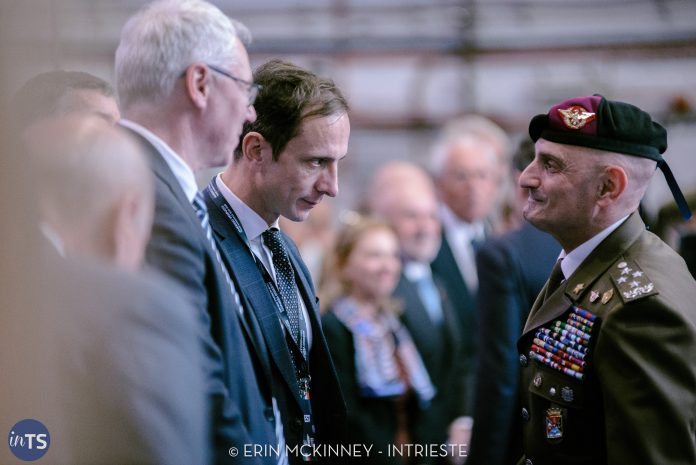by InTrieste
Governor Massimiliano Fedriga of the Friuli Venezia Giulia region defended a proposed national security bill last Tuesday, arguing that the measure is necessary to enhance public safety and promote integration through shared rules.
“This national bill is not solely intended to strengthen the security of our territory,” Fedriga stated during a discussion in the Regional Council on National Bill No. 3, titled ‘Urgent Measures for Public Order, Security, and the Protection of Women and Minors’ Rights.’ “Above all, it seeks to improve integration, which can only be achieved when commonly accepted rules are both respected and enforced.”
Fedriga warned against what he described as “false moralism” in policies surrounding integration, arguing that excessive tolerance of certain behaviors could undermine democratic freedoms. “In an effort to appear tolerant and inclusive, we risk suppressing aspects of democracy and freedom for all citizens,” he said. “This approach ultimately worsens or slows down the integration process.”
The governor also expressed concerns about areas where, he claimed, law enforcement has limited access. “When we turn a blind eye to liberticidal behaviors, we end up accepting the existence of ghettos where law and rights do not exist, places where law enforcement cannot even enter.”
The proposed bill has sparked debate among lawmakers, with some critics arguing that it risks marginalizing certain communities rather than fostering inclusion. Fedriga, however, maintained that addressing ideological opposition was essential for meaningful policy discussions. “The role of politics must be to overcome ideological opposition,” he said. “Otherwise, we fall into propaganda without seriously addressing issues that matter deeply to a segment of our community.”
Also addressing the Regional Council was Pierpaolo Roberti, the regional councillor for security, who defended Italy’s law enforcement agencies against what he described as unfair criticisms.
“The Regional Government firmly dissociates itself from statements that cast our law enforcement agencies in a negative light,” Roberti said. “It is absolutely unacceptable, when discussing the issue of face coverings, to equate violent rioters with law enforcement. Fortunately, this is only a small minority.”
The bill is part of a broader effort by the national government to address concerns related to public order, with particular focus on crime prevention and social integration policies. While it has gained support from some political factions, it remains a subject of contention in the ongoing national debate over security and immigration policies.
































